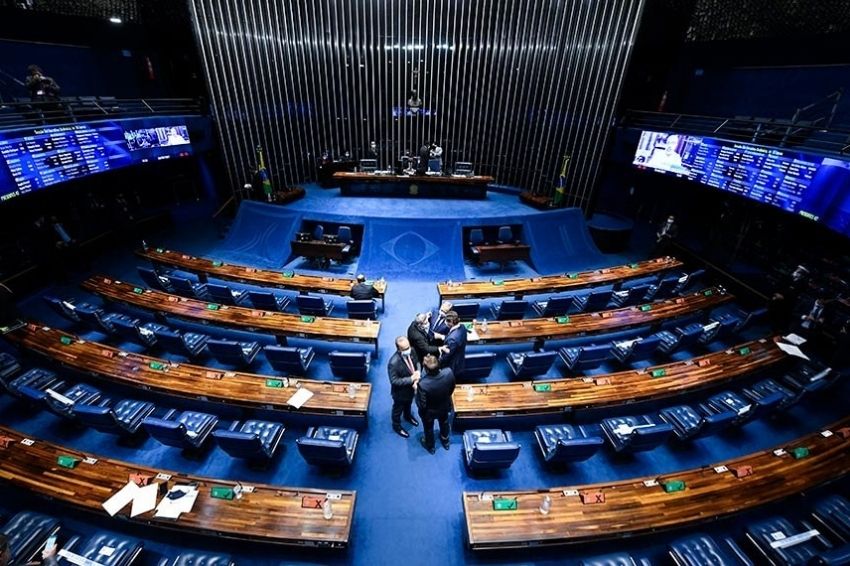O Senate approved on Thursday night (30) the (PL 2015/2021) that encourages solar through real estate financing. The text, authored by senator Kátia Abreu (PP-TO), provides for the inclusion of the value relating to the acquisition and installation of a photovoltaic energy system in the financing of housing property, within the scope of the SFH (Housing Financial System).
The project was approved unanimously with 65 votes and now goes to analysis at the Chamber of Deputies. If approved, the document will be sent for approval by President Jair Bolsonaro (no party) before coming into force.
Kátia Abreu defended the project, highlighting the advantages of photovoltaic panels as a way of protecting the environment and reducing the use of polluting sources. According to her, the solar source is already a reality for users who want to produce clean energy.
Furthermore, the senator also pointed out the effects of the lack of rain on the cost of electricity in a predominantly hydroelectric matrix and highlighted that the water crisis could have been combated if there were incentives for renewables, especially solar.
Read too: Companies demand government for environmental measures and investments in renewables
The senator also said that her project could make the installation of panels even more accessible, especially for low-income families who currently have difficulty affording the initial investment in the systems. “It is a benefit for all Brazilians, especially for the poorest. When financed by SFH, the citizen will have lower interest rates and a longer term”, he argued.
Finally, she also commented that the incentive could help generate jobs, considering that, between 2012 and 2020, the sector was responsible for creating more than 140 thousand direct and indirect jobs in Brazil, according to data from ABSOLAR (Brazilian Association of Photovoltaic Solar Energy). “In the least sunny place in Brazil it is possible to generate more solar electricity than in the sunniest place in Germany, which is one of the leaders in the use of photovoltaic energy”, he stated.
According to Jackson Chirollo, CEO of greenfintech Edmond, a provider of digital financial solutions, the approval of the project will allow major advances in “homeopathic doses” of an energetic and economically inclusive transition. “Decentralization, democratization, financial and energy empowerment of the 'prosumer' (a combination of the words products and consumer) are the movements of the new global economy that our country also needs to overcome and implement to promote sustainable development.” he said.
GD's Legal Framework in the Senate
Approved with 99% of votes in the Chamber of Deputies, PL (bill) 5829, which aims to create the Legal Framework for GD (distributed generation) in Brazil, remains under analysis in the Senate, awaiting the opinion of Senator Marcos Rogério (DEM- RO), chosen as rapporteur of the text in the House.
The proposal, authored by deputy Silas Câmara (Republicanos-AM), was approved in the Chamber on August 18 and, if it is also approved in the Senate without significant changes, it will go to presidential sanction to then come into force. The expectation is that the text will be approved by senators without relevant changes and will become law in 2021.
Image: Jefferson Rudy/Agência Senado.
















3 Responses
Projects, installation of photovoltaic systems, maintenance, cleaning and solar heaters.
Osasco-SP
11956647825
Celio
What are the advantages of installing Photovoltaic panels? I've already installed mine.
The first concern for those who want to install it is:
Will I spend any money to have this system?
Answer: Not a penny more than what is normally paid on the monthly energy bill;
But how can this be?
Response:
Let's admit that a family pays 300 reais on their energy bill every month;
When requesting a proposal from an accredited company, it asks for your energy bill data and makes a calculation based on the average annual consumption and annual solar incidence according to the region;
Once this is done, the company presents all the technical data of the equipment and the basic value of the installments considering the minimum mandatory fee that must be paid to the energy supplier in the region, in the case of Bahia it is COELBA;
This value is according to the installed phases calculated in monthly kWh. For example: Single-phase is 30kwh, two-phase 50kwh and three-phase 100kwh.
The kwh costs around 1 real.
In the example above, if consumption is 300 reais, if it is single-phase, the user would pay 30 reais per month even if they do not consume it.
Therefore, there is 270 reais left for the interested party to go to the bank of their choice and request a loan for Renewable Energy, which specifically has the lowest interest rates. Banks offer fixed loans to finance in 12, 24… Up to 72 months. Be careful to only start deducting after 60 days, which is the maximum period for installation and approval by COELBA, in such a way that you avoid simultaneously paying the bill without generation and installment.
But remember that this has a deadline because as the energy generated is accumulated in the COELBA network, these companies have already won in the Chamber of Deputies the right to tax the accumulated energy, which will reach 100% at the end of the process. A period of up to 12 months was given to those who install and remain exempt for the next 25 years. Therefore, it is worth installing this system, which has a guarantee of 25 years or more of operation, in addition to only paying the minimum fee after completing the financing payment. Run, because time is passing.
Thank God Brazil is coming out of darkness into light. These projects, like so many others that benefit users, the environment, companies, the government and society as a whole, must be approved urgently so that we can banish the specter of the blackout once and for all.